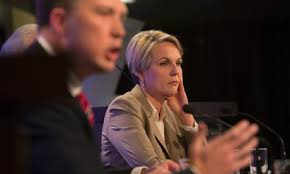Health debate a non-event as parties dodge detail
This week’s Health Debate at the National Press Club in Canberra proved a fizzer as Health Minister, Tanya Plibersek and Shadow Minister, Peter Dutton faced off in front of an audience of more than 100 media and PRs, patients, advocacy, consumer group representatives and health organisation representatives.
Confirming what one of our recent VIVA! blogs alluded to, the debate proved once again that health policy is simply not a main election agenda issue. Outside of vague pledges from the Coalition that cuts will not be made to Medicare Locals and health agencies if the Liberals gain office, nothing of real importance was discussed during the debate.
Ms Plibersek waxed lyrical about how much she has enjoyed being in the top health job and what her party had achieved over the past six years, including the introduction of GP super clinics, electronic health records, hospital reform and mental health.
But as expected, Mr Dutton said there were many areas of health that Labor had simply not delivered on. Ms Plibersek put primary care reform forward as a crucial area of focus for any future government, with chronic illness proving to be a major cost-burden to the nation and the tussle over current MBS patient rebates versus provision of quality medical care.
Media commentators noted in analyses of the debate that it was very difficult to identify where the two parties differed on many health issues, with some suggesting Mr Dutton was lurching closer to a traditional Labor health policy agenda.
In terms of discussion of medicines and pharmaceutical issues, Mr Dutton touched on the PBAC listing process, which he alleged was delaying life-saving medications in order to benefit the public purse.
Medicines Australia (MA) CEO, Brendan Shaw stated earlier this week he welcomed the Greens’ commitments to the PBS.
“Over the last few years the industry has been increasingly frustrated by a number of PBS processes. So the Greens’ commitments to support things like predictability in the process for listing new medicines, preserving the independence of the PBAC and getting new medicines listed in a timely manner, are especially welcome,” he said.
So it seems health remains a political ‘hot potato’, with neither party willing to be drawn on policy specifics and not seeking to attract too much attention to one of the basic tenets of our society – that is, our right to high quality health and wellbeing. So much for a so-called ‘debate’ on health.

